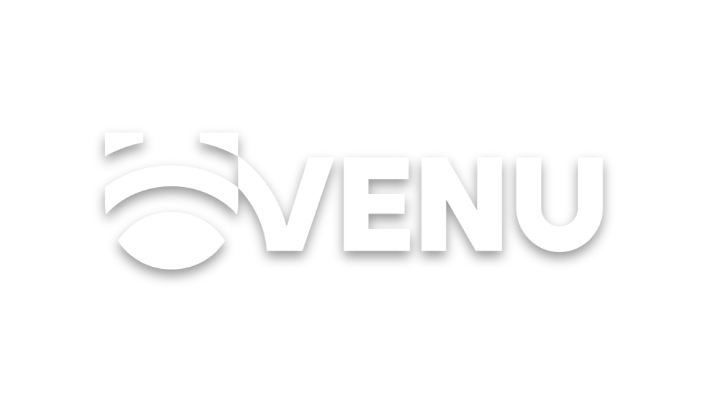Redefining Fan Engagement: How Daniel Canepa and Uvenu Are Transforming Live Entertainment
In the world of live sports and entertainment, fan expectations are shifting fast. Audiences are no longer content to simply watch—they want to participate, shape, and share the moment in real time. As leagues and broadcasters scramble to keep up, one company is quietly rewriting the rulebook on audience engagement: Uvenu.
Co-founded by Daniel Canepa, Uvenu is a rising tech startup offering a cloud-based, mobile-first platform that allows fans to engage directly with live broadcasts. Think of it as a digital stage door—one that lets audiences not only react to what’s happening on screen but actively contribute to the show. With cutting-edge technology and a philosophy built on inclusion and interactivity, Uvenu is betting big on a future where the line between content creator and consumer is permanently blurred.
“We’re creating a system where fans don’t just watch—they shape the experience,” says Canepa. “That’s the next generation of entertainment.”
Innovation Born From Frustration
The idea for Uvenu came from a familiar place: a shared frustration with the static nature of sports viewing. Despite an explosion of digital tools and mobile apps, the core broadcast experience had barely evolved. Daniel saw a gap—and an opportunity.
“We realized that fans had more technology in their pockets than broadcasters were using in their production stacks,” Daniel explains. “That disconnect didn’t make sense. We knew there had to be a way to bridge it.”
The result is Uvenu: a platform that enables real-time interaction between fans and live events using just a mobile phone. Whether it’s filming a selfie video, submitting photos and videos to a social wall, responding to live polls, or even sharing alternate camera angles from the stands, Uvenu turns spectators into collaborators.
Their system integrates directly with production control rooms, allowing for seamless inclusion of fan content in live broadcasts. The platform is fully cloud-based and works across iOS, Android, and web, making it accessible to anyone, anywhere.
And in an industry that often prizes exclusivity, Uvenu is democratizing the broadcast booth.
“We’re empowering fans to be seen and heard,” says Daniel. “It’s a simple concept, but it’s incredibly powerful.”
Building in Real Time
Launching a tech platform in the middle of an industry undergoing massive transformation isn’t easy—but for Daniel Canepa, navigating change has always been part of the journey.
With former careers in both news and sports, Daniel spent years working behind the scenes on concerts, sporting events, and major broadcasts. That experience gave him a front-row seat to both the excitement and the limitations of legacy production systems.
“What I saw time and again was this gap between the audience’s energy and what made it to screen,” he recalls. “There was so much potential being left on the table.”
Daniel brought that insight—and his passion for storytelling—into the DNA of Uvenu. From the start, he’s led the company with a focus on designing for inclusion: building a platform where participation feels natural, intuitive, and meaningful.
“Leadership for me is about creating clarity and removing friction,” he says. “You can’t lead people—or users—through complexity. You have to simplify without dumbing things down.”
That mindset has helped Uvenu iterate quickly. The platform already supports features like geo-fenced event access, VIP links for exclusive contributors, real-time interactive games, and content moderation tools. It’s also attracting attention from professional sports teams, broadcasters, and brands looking to deepen their connection with fans.
From Fans to Co-Creators
At a time when content is everywhere and attention is scarce, fan engagement is becoming the most valuable currency in sports and entertainment. Uvenu’s model offers a new kind of ROI: relevance, authenticity, and loyalty.
“We’ve entered an era where the audience doesn’t just want to be talked to—they want to be in the conversation,” Daniel says. “If you’re not creating two-way experiences, you’re going to lose them.”
Indeed, fan behavior is evolving. According to Nielsen, nearly 80% of Gen Z consumers prefer interactive entertainment over passive viewing. Platforms like Uvenu aren’t just responding to that trend—they’re shaping it.
That’s not lost on marketers, either. With Uvenu, brands can create real-time promotions, run live polls, reward fan-generated content, and collect first-party data directly from users. It’s a direct-to-consumer strategy built on authenticity, not algorithms.
Staying Ahead of the Curve
As Uvenu scales, Daniel remains focused on culture—both inside the company and out. The team operates with a startup mentality, but with enterprise-level discipline. Rapid iteration, thoughtful user testing, and a deep understanding of the live production ecosystem have been key to their early traction.
“The speed of innovation in this space is intense,” says Daniel. “But what keeps us grounded is our mission: to make live entertainment more human.”
That mission is resonating. Uvenu is currently in talks with several major leagues and media companies for pilot integrations, and the company continues to expand its capabilities—adding new layers of interactivity and customization.
But for Daniel, the measure of success isn’t just technical.
“If a fan sees themselves on the jumbotron, or their video becomes part of a broadcast, that’s a core memory,” he says. “We’re not just building a product. We’re creating moments people will remember.”
Looking Forward
Uvenu is still early in its journey, but its impact could be lasting. As the sports and entertainment industries continue to search for ways to stay relevant, connect with younger audiences, and monetize attention, platforms that prioritize participation over passivity will have a head start.
And at the center of that vision is Daniel Canepa: a founder who understands that the future of media isn’t just what’s on screen—it’s who gets to be part of it.
“Our mission is simple,” he says. “We’re not here to replace the broadcast. We’re here to make it feel alive again.”
